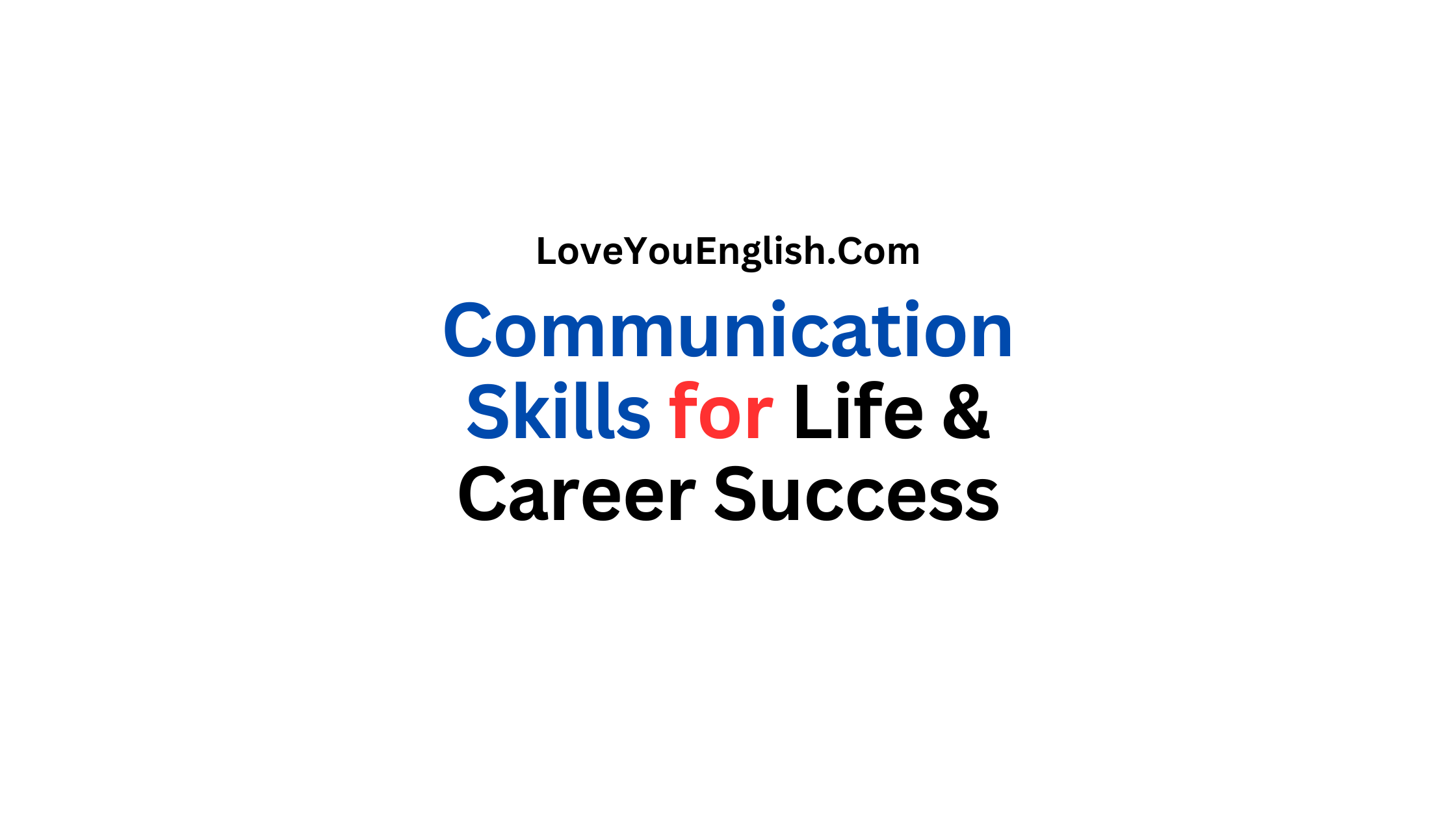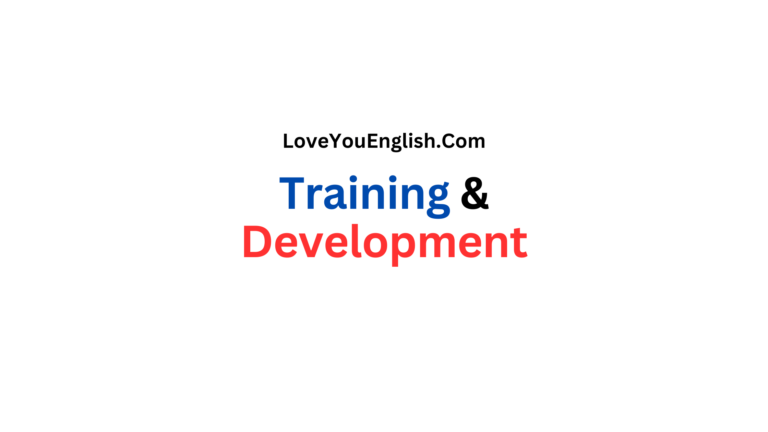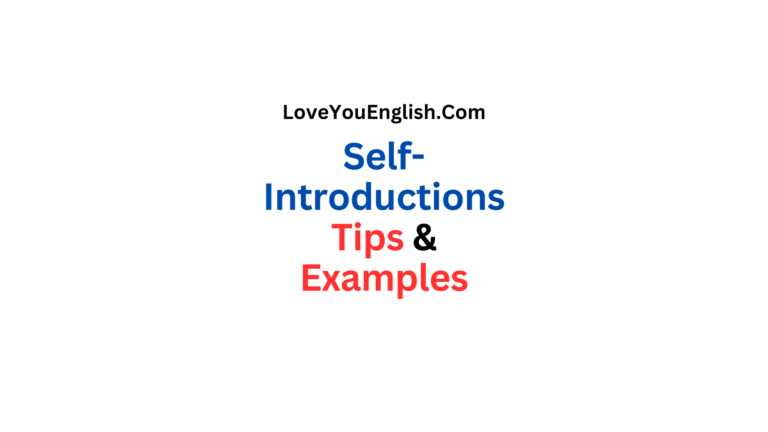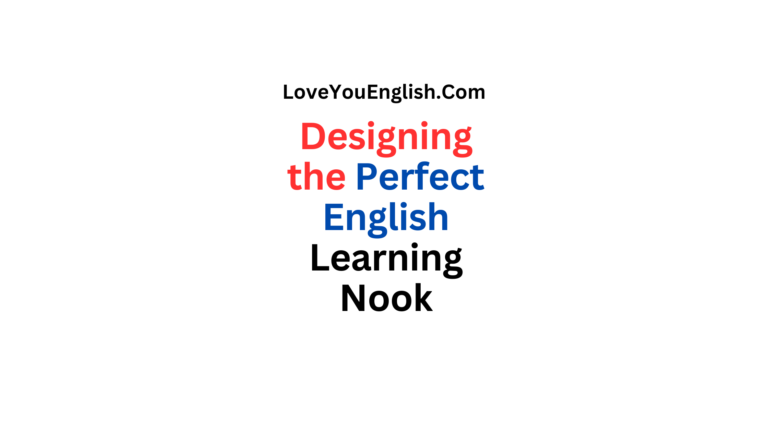10 Communication Skills for Your Life and Career Success
10 Communication Skills for Your Life and Career Success
In our connected world today, being able to communicate well is super important.
Whether you’re dealing with friends, trying to get ahead at work, or starting your own business, how you communicate can really affect your success.
We will look at ten key communication skills that can greatly influence your personal life and career.
By learning these skills, you’ll be able to share your thoughts more clearly, understand others better, and reach your goals.
Active Listening
Active listening is one of the most important communication skills, but it’s often ignored.
It means really focusing on what the speaker is saying, understanding their message, and responding appropriately.
This skill is more than just hearing words; it’s about grasping the full meaning, including the feelings behind the words.
To practice active listening:
- Make sure to give your full attention to the person speaking.
- Put away things that might distract you, like your phone or computer.
- Show that you’re interested by using body language, like making eye contact, nodding, and leaning in a bit.
- Don’t interrupt or think about what you want to say while they’re talking.
- Ask questions to make sure you understand what they mean.
- Repeat back what you heard to check if you got it right.
By becoming an active listener, you’ll not only get better information but also create stronger connections with others.
People like to feel heard and understood, which can help build trust and teamwork in both your personal life and at work.
Clear and Concise Communication
In today’s busy world, being able to communicate clearly and briefly is super important.
Whether you’re sending an email, giving a speech, or explaining something complicated, it’s essential to get your message across quickly and effectively.
To enhance clarity and conciseness:
- Understand who you’re talking to and adjust your message for them.
- Plan your ideas before you start speaking or writing.
- Use straightforward language and steer clear of complicated terms unless you have to.
- Be precise and include specific examples.
- Edit carefully, cutting out any extra words or details that aren’t needed.
By improving your clarity and conciseness, you’ll save time, avoid confusion, and make your communication more powerful.
This skill is especially useful in work environments where time is often limited.
More cool topics:
- 6 Ways to Build Confidence at Work
- Self-Introductions with Tips and Examples
- How to Prepare for a Job Interview in English
- What Is Personal Development and Why Is It Important?
- Linking Short-Term Goals to Long-Term Career Goals
Understanding Emotions
Emotional intelligence (EI) is all about being aware of, understanding, and managing your own feelings, as well as those of other people.
It’s really important for good communication, especially when dealing with conflicts, negotiations, or sensitive issues.
To boost your emotional intelligence:
- Work on being self-aware by thinking about your feelings and how they affect what you do.
- Learn to control your emotions, especially when things get stressful.
- Build empathy by trying to see things from other people’s viewpoints and feelings.
- Use your knowledge of emotions to handle social situations better.
- Pay attention to the emotions in what others say and respond in a suitable way.
Having high emotional intelligence can lead to stronger relationships, better teamwork, and more effective leadership.
It’s a key skill in both personal life and work, helping you deal with tricky social situations with ease and understanding.
Non-Verbal Communication
Non-verbal signals like body language, facial expressions, and the tone of your voice can often express more than just words.
It’s important to be aware of your own non-verbal communication and to understand the signals from others to communicate effectively.
To get better at non-verbal communication:
- Keep an eye on your posture, gestures, and facial expressions.
- Make sure to maintain good eye contact.
- Be mindful of your tone of voice and how it might come across to others.
- Pay attention to the non-verbal signals from others to understand their reactions and adjust how you respond.
- Make sure your non-verbal signals match what you are saying to avoid confusion.
Getting good at non-verbal communication can help you connect with others, show confidence, and understand situations better.
This skill is especially useful in face-to-face conversations, negotiations, and when speaking in public.
Feedback Skills
Knowing how to give and receive feedback in a helpful way is really important for personal growth and career development.
Good feedback can boost performance, strengthen relationships, and create a culture of improvement.
To improve your feedback skills:
- When giving feedback, be clear, timely, and focus on actions instead of personal traits.
- Try the “sandwich” method: start with something positive, then give constructive criticism, and finish with encouragement.
- When receiving feedback, listen carefully and try not to get defensive.
- If you need more details, ask questions and thank the person for their input.
- Use feedback as a chance to grow and get better.
Having strong feedback skills can speed up learning, improve teamwork, and help create a more positive and productive atmosphere in both personal and work situations.
Communication Flexibility
Different situations and audiences need different ways of communicating.
Being able to change how you talk based on the situation and the people you’re with is a really important skill.
To improve your communication flexibility:
- Pay attention to the atmosphere and figure out the right tone and formality level.
- Learn various communication styles, from casual chats to formal discussions, and practice switching between them.
- Understand cultural differences in how people communicate and adjust your style as needed.
- Customize your message and how you deliver it to fit what your audience prefers.
- Be open to changing your approach if it’s not working out.
Being flexible in communication helps you connect better with different groups, handle various social and work situations, and reach your communication goals more often.
Being Assertive
Being assertive means, you can share your thoughts, feelings, and needs clearly and respectfully while also considering what others need.
This skill is super important for keeping healthy relationships and reaching your goals without being too pushy or too shy.
To build your assertiveness:
- Use “I” statements to share your feelings and needs without blaming anyone else.
- Learn to say “no” when you need to, and don’t feel bad about it.
- Share your opinions confidently, even if they’re different from what others think.
- Stand up for your rights and beliefs while still respecting others.
- Practice setting and keeping healthy boundaries.
Being assertive can help you handle conflicts better, boost your self-confidence, and gain respect from others.
It’s especially useful in work situations where you need to stand up for yourself or your ideas.
Public Speaking
Not everyone has to be a great speaker, but being able to talk confidently in front of others is a really useful skill in many situations, both personal and professional.
Whether you’re presenting at work, speaking at a local event, or giving a toast at a wedding, knowing how to speak in public can help you get your message across better.
To get better at public speaking:
- Practice often, even if it’s just in front of a mirror or with a few friends.
- Understand who your audience is and adjust what you say to fit their interests and needs.
- Organize your ideas and follow a clear outline for your speeches.
- Use stories to make your message more interesting and easier to remember.
- Learn to manage nervousness with techniques like deep breathing and visualizing success.
Being a confident speaker can boost your professional image, increase your influence, and create new chances for leadership and growth.
Written Communication
In our digital world, being good at writing is super important.
Whether you’re sending emails, writing reports, posting on social media, or creating articles, knowing how to write clearly and effectively is essential.
To improve your writing skills:
- Understand your goal and who you’re writing for before you start.
- Use a clear format with an introduction, main points, and a conclusion.
- Choose a tone that fits your audience and the type of writing.
- Check your work carefully for grammar, spelling, and punctuation mistakes.
- Use tools like headings, bullet points, and spacing to make your writing easier to read.
Having strong writing skills can help you explain complicated ideas better, build your professional image, and prevent misunderstandings that can happen with unclear messages.
Conflict Resolution
Conflict is something that happens to everyone, whether it’s with friends, family, or coworkers.
Being able to handle and solve conflicts in a positive way is an important skill that can help you build better relationships and achieve better results.
To get better at resolving conflicts:
- Stay cool and think of conflicts as problems to solve.
- Listen carefully to understand what everyone is saying.
- Use “I” statements to share your feelings without pointing fingers.
- Look for things you all agree on.
- Be open to finding solutions that work for everyone.
When you resolve conflicts effectively, you can turn tough situations into chances for growth, creativity, and stronger connections.
This skill is especially important for leaders and people who work in teams.
Conclusion:
Improving these ten communication skills can really boost your personal life and career.
Good communication is key to having strong relationships, working well with others, and growing as a person.
By focusing on these skills, you’ll be better at sharing your thoughts, understanding others, and dealing with the social challenges we all face.
Remember, developing these skills takes time. Start by picking one or two areas where you want to improve the most.
Practice often, ask for feedback, and be patient with yourself as you learn. With dedication, you’ll notice positive changes in your relationships, job performance, and overall happiness.
In our fast-moving, information-filled world, strong communication skills are super important.
They can help you stand out in your job, create meaningful friendships, and tackle life’s challenges more easily.
When you work on these ten important communication skills, you’re not only getting better at talking to people, but you’re also setting yourself up for success and happiness in the future.






